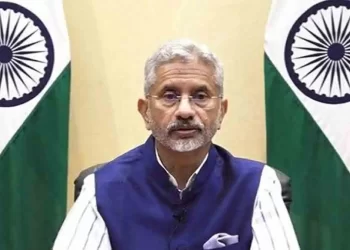Prime Minister Narendra Modi welcomed his Japanese counterpart Fumio Kishida on Monday to discuss defense technology and the roles of the two countries in the international community.
While addressing the press conference, PM Modi said, “Today, I told PM Kishida in detail about the priorities of our G20 presidency. An important foundation of our G20 presidency is to voice the priorities of the Global South. A culture that believes in Vasudhaiva Kutumbakam, believes in going ahead by bringing everyone together.”
Meanwhile, Kishida invited PM Modi to Japan for the G7 Hiroshima Summit scheduled to be held in may this year. He said, “I formally invited PM Modi to G7 Hiroshima Summit and on the spot my invitation was immediately accepted.”
“Our economic cooperation with India which continues to grow rapidly will not only support the further development of India but also create significant economic opportunities for Japan. In this regard, we welcome that steady progress is being made towards realising 5 trillion yen of public and private investment in financing from Japan to India in 5 year,” added Kishida.
The Japanese PM further said, “We will continue to work on decarbonisation and energy…2023 will be the year of the Japan-India tourism exchange to promote our exchanges through tourism. I welcome the renewal of our MoC on Japanese language education.”
The evolving situation in the Indo-Pacific in the context of China’s rising military assertiveness is also likely to be discussed in depth by Modi and Kishida. The visit of Japan’s Prime Minister is expected to last approximately 27 hours.
In the afternoon, he is scheduled to present his ‘Free and Open Indo-Pacific Plan for Peace’ at a leading think tank. The plan is expected to emphasize India’s importance in the Indo-Pacific region. Kishida stated last June at the prestigious Shangri-La Dialogue in Singapore that he would lay out the Indo-Pacific strategy next spring.
“I will lay out a ‘Free and Open Indo-Pacific Plan for Peace’ by next spring which will strengthen Japan’s efforts to further promote the vision of a free and open Indo-Pacific, with an emphasis on providing patrol vessels and enhancing maritime law enforcement capabilities, as well as cyber security, digital and green initiatives, and economic security,” he had said.
The plan is expected to detail Japan’s policy and approach to the Indo-Pacific region. Almost all major powers have released their Indo-Pacific strategies in the last few years. Japan has advocated for a free and open Indo-Pacific in order to preserve and strengthen the region’s rules-based international order.







 Finance
Finance







